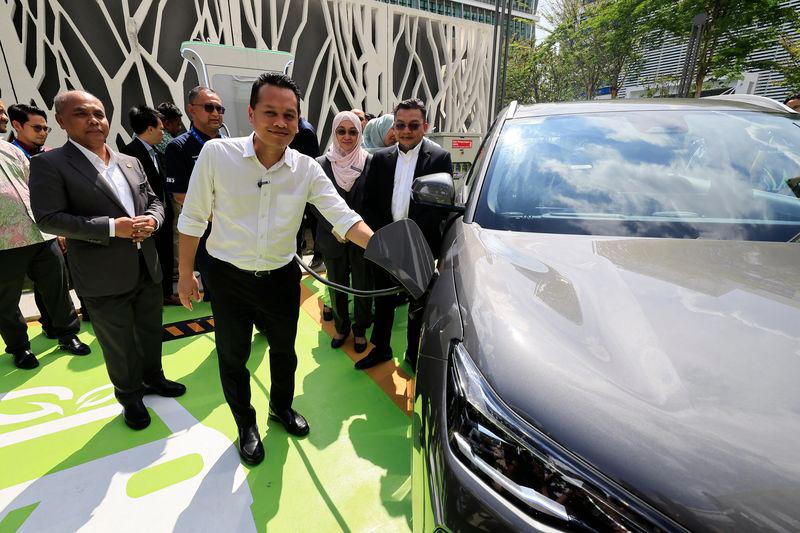PUTRAJAYA: The transition of official government vehicles to electric vehicles (EVs) will be implemented in stages beginning next year, said Minister of Natural Resources and Environmental Sustainability Nik Nazmi Nik Ahmad.
He said the transition process had begun and the matter would be finalised by the Ministry of Finance (MOF) soon.
“This transition will not be carried out in one go, it will be done in stages, but the process has already begun and will be finalised soon.
“But, Insha-Allah, I feel that by next year we will see that this can be carried out practically,“ he told a media conference after the ceremony to handover the Guidelines on the Transition of Government Vehicles to EVs and the launch of the Fast EV Charging Station here today.
Asked if the transition will involve all levels or certain departments, Nik Nazmi said that would depend on needs and is subject to MOF’s decision.
“It depends on needs as several aspects need to be taken into account because, in the (government vehicles transition) guidelines, we need to see what is the requirement.
“This depends on whether the transition can be fully met by domestic EVs or other EVs and so on,“ he said.
Meanwhile, Nik Nazmi said the Guidelines on the Transition of Government Vehicles to EVs is a guide document drafted by the Ministry of Natural Resources and Environmental Sustainability (NRES) through the Malaysian Green Technology and Climate Change Corporation (MGTC).
It was prepared together with technical expertise and stakeholders, comprising various ministries, departments and agencies as well as industries.
“This document details the transition strategy, which covers the current fleet inventory evaluation to identify operational requirements, electric vehicle selection, charging infrastructure planning and cost analysis as well as carbon emission reduction to ensure a systematic and effective transition, besides enhancing the agenda of environmental sustainability.
“In addition to that, the aspects of safety, monitoring, reporting and training also are a priority to guarantee a seamless transition.
“I believe the support from all parties such as procurement and asset managers, financial and account managers, including drivers, would have a positive and effective impact on environmental management, besides reducing the operational and maintenance costs of government vehicles in the long run,“ he said.
He added that the guidelines aimed to ensure the transition of government vehicles to EVs would run smoothly and drive the innovation and development of the EV ecosystem in Malaysia sustainably.
At the ceremony, Nik Nazmi also launched the first Direct Current Fast Charger (DCFC) at Block F11, Complex F here.
Nik Nazmi said the fast charging station had a 60-kilowatt capacity that enables EVs to be charged up to 80 per cent capacity in less than 30 minutes, compared to normal alternating current (AC) charging that takes hours.
“This initiative also supports Putrajaya’s vision of becoming a Low Carbon City by 2025 by showcasing Complex F as an example in the implementation of the Low Carbon Zone.
“This project aims to display the implementation of the low carbon initiative in government premises, simplify the ownership and usage of EVs through the provision of support infrastructure as well as becoming a role model to other ministries, departments and agencies,“ he said.









